Below are the details of each verdict and sentence announced by Spain’s Supreme Court for the Catalan political leaders and activists behind the 2017 independence bid. Also click here for our full report.
Oriol Junqueras
Former Catalan vice president, finance minister and leader of the Esquerra Republicana (ERC) party.
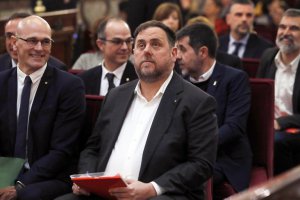
Junqueras is the most senior political figure convicted for his role surrounding the 2017 referendum. Alongside former president Carles Puigdemont, he was one of the main independence leaders, but unlike Puigdemont, he remained in the country and was put in pre-trial detention on 2 November 2017.
While in prison he ran as ERC’s candidate for Catalan president in the 21 December 2017 election, a Spanish Congress MP in the 28 April 2019 Spanish general election – for which he was elected, took up his seat and was disqualified shortly thereafter – and then also as an MEP in the 26 May 2019 European Parliament election. He was elected MEP, but was not able to take up his seat – the European Court of Justice is yet to rule on his parliamentary immunity.
Junqueras spent 711 days in preventive detention prior to sentencing.
Crime: sedition and misuse of public funds. Prison sentence: 13 years. Disqualification: 13 years
Jordi Turull
Former Catalan presidency minister.
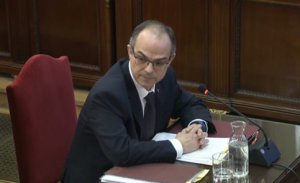
As the presidency minister and cabinet spokesperson, Turull was one of the highest-ranking government officials at the time of the independence referendum. He entered prison on 2 November 2017, only to be released a month later on bail before being jailed once again on 23 March 2018, during a two-day parliament debate in which his bid for Catalan president was being discussed.
Elected MP for Junts per Catalunya (JxCat) in the December 2017 Catalan election, he was proposed by Puigdemont to be his successor when Spanish courts blocked him from taking the post from a distance. Back in prison again, Turull was suspended as MP and prevented from holding his ministerial post. Like Junqueras, he also won an MP seat in the April 2019 Spanish election, very briefly took up his seat in Spanish Congress, and was then disbarred.
Turull spent 602 days in preventive detention prior to sentencing.
Crime: sedition and misuse of public funds. Prison sentence: 12 years. Disqualification: 12 years
Joaquim Forn
Former Catalan interior minister
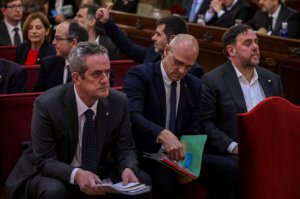
As interior minister, Joaquim Forn was in charge of Catalonia’s Mossos d’Esquadra police force when the independence referendum took place. Accused of not doing enough to stop the vote, Forn has denied the existence of any ‘political interference’ with the Mossos.
Along with Junqueras, Forn is the only minister to remain behind bars consistently since 2 November 2017. Forn also ran for mayor of Barcelona as the JxCat candidate in the 26 May 2019 local election and was allowed to leave prison two days in June to register as one of the city councillors.
Forn spent 711 days in preventive detention prior to sentencing.
Crime: sedition. Prison sentence: 10.5 years. Disqualification: 10.5 years
Raül Romeva
Former Catalan foreign action minister.
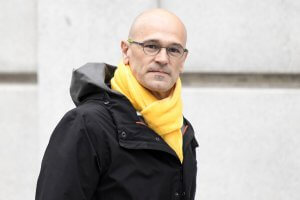
After a decade of serving as a member of the European Parliament for the Greens-EFA group, Romeva returned to Catalan politics in 2015 to lead the pro-independence parties that at the time had formed a joint electoral list. He served as foreign action minister of Catalonia until Spain triggered Article 155 of the constitution suspending Catalan self-rule, following the declaration of independence in October 2017
Romeva spent a month in jail, was released on bail, and was imprisoned again in March 2018. Elected MP for ERC in the December 2017 Catalan election, the Supreme Court suspended him in July 2018. He was also elected senator in Spain’s April 2019 election, but as happened with the jailed MPs, was suspended days after taking up his seat.
Romeva spent 602 days in preventive detention prior to sentencing.
Crime: sedition and misuse of public funds. Prison sentence: 12 years. Disqualification: 12 years.
Dolors Bassa
Former Catalan labour and social affairs minister.
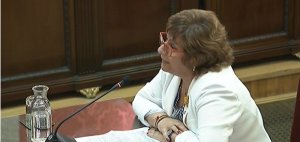
Dolors Bassa was the Catalan labour and social affairs minister when the 1 October 2017 independence referendum took place. She was released on bail after spending a month in prison from November to December 2017. A member of ERC, she resigned from parliament before appearing before the Supreme Court in March 2018, but was imprisoned nonetheless.
Bassa spent 602 days in preventive detention prior to sentencing.
Crime: sedition and misuse of public funds. Prison sentence: 12 years. Disqualification: 12 years.
Josep Rull
Former Catalan territory minister
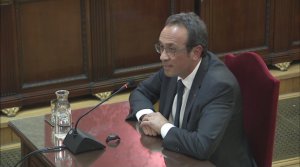
A close ally of Puigdemont, Josep Rull has served as a member of the Catalan Parliament for more than two decades. After spending one month in jail and being released on bail, he was imprisoned again last March.
Catalan president Quim Torra proposed that he take the post of territory minister again while in prison, but Spanish courts blocked his appointment and later suspended him as Catalan MP. Along with jailed party colleagues Turull and Sànchez, Rull was elected MP for JxCat in Spain’s April 2019 election, was allowed to leave prison to take up his seat and was then suspended.
Rull spent 602 days in preventive detention prior to sentencing.
Crime: sedition. Prison sentence: 10.5 years. Disqualification: 10.5 years
Carme Forcadell
Former Catalan Parliament speaker.
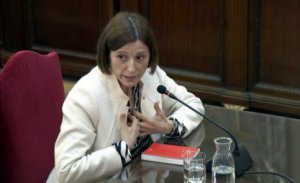
Forcadell is one of the independence movement’s key players since it gained further momentum in 2012. During the early years, she was the leader of a large grassroots pro-independence organisation, the Catalan National Assembly (ANC), and from 2015 was the speaker of the Catalan Parliament.
The Spanish Constitutional Court sent her several warnings and the Spanish prosecutor filed criminal lawsuits against her whilst in office for facilitating parliamentary debates and votes on independence. Forcadell, however, has repeatedly stated that she was simply respecting freedom of speech and MPs’ rights. Forcadell spent a month in prison before being sent to prison again in March 2018, as were Bassa, Rull, Romeva, and Turull.
Forcadell spent 571 days in preventive detention prior to sentencing.
Crime: sedition. Prison sentence: 11.5 years. Disqualification: 11.5 years
Jordi Sànchez
Former ANC grassroots leader
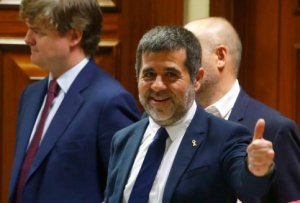
Jordi Sànchez took over the ANC’s leadership in 2015 when Forcadell formally entered politics. He led a protest outside the Catalan economy department on 20 September 2017, as a response to Spanish police raids against the referendum organisation. No-one was injured, but the protest was considered a ‘tumultuous’ one, for which Sànchez was charged with sedition, and then rebellion. The grassroots leader maintains that all pro-independence demonstrations over that period were peaceful.
Sànchez, who has been in prison since 16 October 2017, stepped down as ANC leader and was elected as Catalan MP for Puigdemont’s party. Unsuccessful attempts were made to allow him to be sworn in as Catalan president following the December 2017 election, and he was also suspended as MP. Like Turull and Rull, Sànchez was elected MP for JxCat in the April 2019 Spanish vote, was allowed to take up his seat and was then suspended days later.
Sànchez spent 728 days in preventive detention prior to sentencing.
Crime: sedition. Prison sentence: 9 years. Disqualification: 9 years
Jordi Cuixart
Òmnium Cultural grassroots leader.
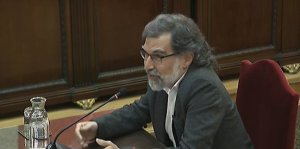
Jordi Cuixart is the only jailed leader who has never held a public political post. During the 2017 referendum, he was president of Òmnium Cultural, another large pro-independence organisation, and faced the same charges as Sànchez. Both were the first to be sent to precautionary jail in October 2017.
Unlike Sànchez, however, he did not make the move to institutional politics in the December 2017 Catalan election and remained at the head of Òmnium. This organisation has dramatically increased its membership to 170,000.
Cuixart spent 728 days in preventive detention prior to sentencing.
Crime: sedition. Prison sentence: 9 years. Disqualification: 9 years
Meritxell Borràs
Former Catalan governance minister.
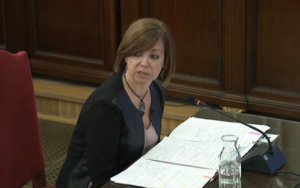
Catalonia’s governance minister at the time of the independence referendum, Meritxell Borràs decided to leave politics after spending 33 days in prison, thereby ending a career that spanned more than 20 years. Summoned to court in March 2018, she was allowed to walk free while most of her colleagues were incarcerated once again.
Crime: disobedience. Prison sentence: none. Disqualification: 20 months. Fine: €60,000
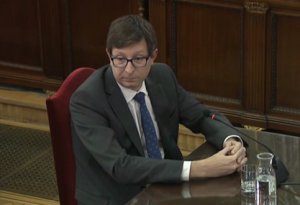
Carles Mundó
Former Catalan justice minister.
Like Borràs, Carles Mundó left politics after spending 33 days in jail in late 2017 for his role in the independence bid. He was the Catalan justice minister at the time of the referendum.
Crime: disobedience. Prison sentence: none. Disqualification: 20 months. Fine: €60,000
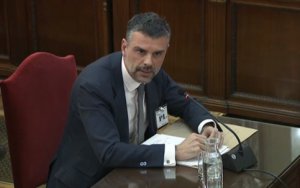
Santi Vila
Former Catalan business minister
Santi Vila was skeptical of promoting a unilateral push for independence during his time as a member of Puigdemont’s cabinet. He was part of the government when the referendum was called, and the day before independence was declared, he stepped down from his post and left politics altogether soon afterward having spent a night in prison. Santi Vila has said that his department spent no money on referendum logistics.
Crime: disobedience. Prison sentence: none. Disqualification: 20 months. Fine: €60,000

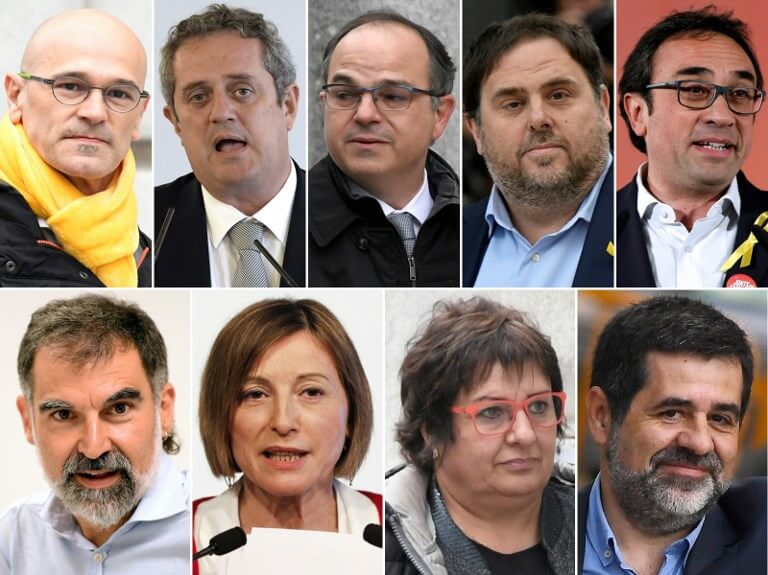

1 comment
To an outsider, with Catalonia being responsible for 19% of Spain’s GDP and the ‘Independence’ proponents being somewhat wealthier than the average Catalonian, it looks an awful lot like a Spanish version of Brexit – in other words it’s about the money with a nod in the direction of a cultural identity which is somewhat different to the Castilian one – but then the Basques have also tried to make that argument albeit with bullets and bombs. Catalonia has been part of Spain since the late fifteenth century – why do these people think they have the right to try and impose an independence that has no popular support in Spain or in Catalonia under the terms of any properly run referendum or at least not a convincing one. Finally, its economic and commercial value aside tell me which country on earth would relinquish part of its territory that constituted a land corridor (via the Pyrenees) in a country bordered by foreign territory the sea and mountains. Their parents and grandparents will have suffered under Franco’s fascist rule, and emerged from it to a brighter freer future with the rest of Spain, and their actions seem a bit of an insult to the many who died and suffered at that time. They have benefitted greatly from Spain’s overall prosperity since 1975 including freedom under the law of the 1978 Constitution, and, it seems, quite properly have been prosecuted under that Constitution.